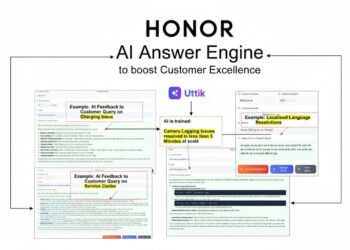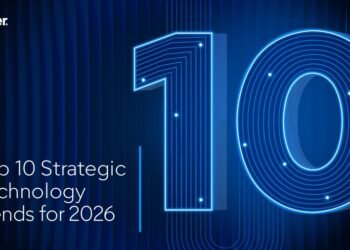Strategic Discounts Bolster Federal IT Modernization Efforts
NATIONAL (India CSR): In a transformative move for federal IT spending, Microsoft has pledged over $6 billion in savings on cloud services for the U.S. government over the next three years, with $3.1 billion projected in the first year alone. Announced on September 2, 2025, this landmark agreement with the U.S. General Services Administration (GSA) aligns with the Trump administration’s OneGov initiative to streamline costs and enhance efficiency. By offering discounts on its flagship cloud and productivity tools, Microsoft is positioning itself as a key partner in modernizing government operations while intensifying its competitive edge in the cloud computing market.
A Game-Changing Deal for Federal Agencies
Microsoft’s commitment to the GSA includes substantial price reductions on its suite of services, encompassing Office productivity subscriptions, Azure cloud infrastructure, Dynamics 365 business applications, and Sentinel cybersecurity software. As an added incentive, the company is providing a year of complimentary access to its Copilot AI assistant for millions of federal employees with Microsoft 365 G5 subscriptions. This deal, effective through September 2026, requires agencies to procure services through the GSA to unlock the savings. The initiative is expected to save the government $3.1 billion in the first year, with cumulative savings exceeding $6 billion by 2028, according to Microsoft.
OneGov Strategy Drives Cost Efficiency
The agreement is a cornerstone of the GSA’s OneGov strategy, launched following President Donald Trump’s return to office in January 2025. OneGov aims to consolidate federal spending to negotiate better pricing with major vendors. Microsoft joins other tech giants like Adobe, Amazon, Google, and Salesforce, which have already offered discounts to support this cost-saving initiative. Josh Gruenbaum, the newly appointed commissioner of the GSA’s Federal Acquisition Service, emphasized the ease of transitioning to these discounted rates, noting that agencies can swiftly adopt the lower pricing structure to optimize their budgets.
Microsoft’s Strategic Partnership with the Government
Microsoft’s deep ties with the U.S. government, particularly in IT, make it a pivotal player in federal operations. The GSA oversees approximately $110 billion in spending on shared goods and services, out of a total federal expenditure of $450 billion, with $80 billion allocated to IT. Microsoft’s annual revenue from government contracts is estimated to be in the mid- to high-single-digit billions, underscoring its critical role in both civilian and defense sectors. Gruenbaum highlighted Microsoft’s importance, stating, “Their software and tools are foundational to how we operate across government agencies.”
Satya Nadella’s Vision for AI and Market Leadership
The deal reflects Microsoft CEO Satya Nadella’s strategic vision to deepen collaboration with the Trump administration, particularly in advancing AI adoption. Gruenbaum, who engaged in multiple discussions with Nadella, noted that the CEO is keen on ensuring seamless integration of AI technologies like Copilot into federal workflows. Additionally, Nadella aims to capture greater market share in the competitive cloud services landscape, where rivals like Amazon Web Services and Google Cloud are also vying for government contracts. Microsoft’s Azure platform, bolstered by this deal, is poised to strengthen its position in the $100 billion global government cloud market.
Broader Implications for Federal IT Modernization
This agreement comes at a time when the GSA is expanding its procurement oversight, incorporating agencies like NASA and the National Institutes of Health, following an executive order signed by President Trump in March 2025. The move is part of a broader push to modernize federal IT infrastructure, with cloud computing and AI at the forefront. Microsoft’s discounts could accelerate the adoption of secure, scalable cloud solutions, addressing longstanding concerns about cybersecurity and data management. However, social media discussions on platforms like X have raised concerns about potential vendor lock-in, with some users speculating that the savings may come with long-term cost increases after 2028.
You Learn: Balancing Savings and Innovation
As federal agencies embrace Microsoft’s discounted services, the focus will be on leveraging these savings to fund critical IT upgrades. The inclusion of Copilot AI for free signals a push toward integrating advanced technologies into government operations, potentially streamlining processes and enhancing decision-making. With the global cloud services market projected to grow to $1.6 trillion by 2030, Microsoft’s strategic discounts position it to capture a significant share of federal spending while setting a precedent for other tech giants. The success of this deal will depend on the GSA’s ability to ensure transparency and prevent over-reliance on a single provider.
(India CSR)






















